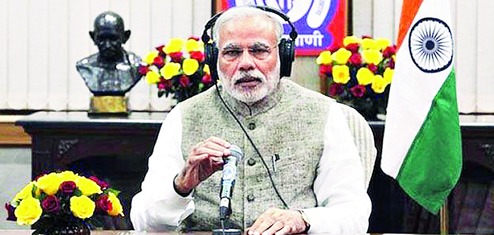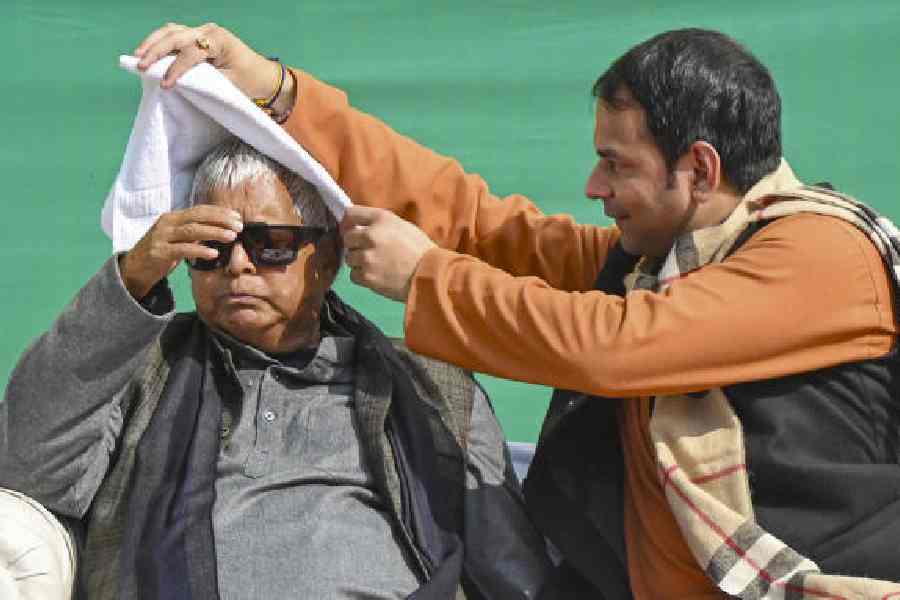
When Rohit Sharma was given run-out and Yuvraj Singh replaced him in India's Champions Trophy match against Pakistan, it felt like a flashback. Yuvraj has been around for so long, he carries the past to the crease when he walks out to bat. A bit like Dhoni; so literally has Virat Kohli remade this team in his image - all those Kohlibeards - that Dhoni behind the stumps comes as a shock, like a ghost from another time with gloves on.
Dhoni and Yuvraj are both 35 (Dhoni's fractionally older) but it's Yuvraj who is swaddled with the aura of another era. This is partly down to the fact that his struggle with cancer and a dip in form saw him disappear from the international stage for four long years. But it's also because he has been playing for longer than Dhoni has; his career is as old as this century.
I watched him at Lord's fifteen years ago to the month, winning the second match of the Natwest Trophy for India in heroic style. I had spent the morning on a train, riding up to London so by the time I got on the bus the match had begun. It didn't help that Lord's was a couple of miles from the nearest bus stop, obscurely called Swiss Cottage. I got to the ground two hours into the match to find England disastrously well-placed: two hundred and a few for three with twelve overs to go.
Yuvraj strangled the England innings in the closing overs and took three wickets to keep the score down to 271 and then, in partnership with Dravid, smacked Hoggard and Co. all over that strange tilted ground to make the target with more than an over in hand. He was a magnificent prospect: a useful left-arm spinner, electric-heeled in the field, who batted like Bheem padded-up. Yuvraj and Mohammad Kaif seemed like the future of Indian cricket.
That wasn't to be. Kaif never quite made the grade at the highest level and it wasn't in Yuvraj's nature to be a constant star; he has been India's limited- overs comet, blazing trails of glory in between disappearing from the night sky. But here he was, ten years after he last played an ODI in England, having missed the two warm-up games because of fever, walking out to play the first match of a big tournament against the old enemy.
The openers had built a big platform, then Kohli helped Sharma get the score up to 192 before the opener was unluckily run out. India was comfortably placed but thanks to rain breaks and an initially subdued performance from Kohli, there was a danger that the three hundred plus score that seemed certain earlier was slipping from India's grasp. The innings needed velocity. Enter Yuvraj.
There are sporting moments that seem scripted by a higher power. The scene seemed set for a Yuvraj special but it wasn't clear that this late model buccaneer was up to reprising the star turns he had played in the past. Wahab Riaz made him hop with a short one that he played down uncomfortably and then whistled one past his head at ninety-two miles an hour. Nobody likes fast bouncers and Yuvraj likes them less than most. Then Riaz pitched one up and Yuvraj reflexively played his patented flick through mid-wicket for four.
The turning point of the innings came immediately afterwards, against the excellent young leg spinner, Shadab Khan, who had already troubled the top order with a hard-to-pick googly. He bowled another one, temptingly tossed up, and Yuvraj went for it. He pranced down the pitch, planted his front foot and swung, aiming for the stands beyond the straight boundary. He was beaten in the flight, bamboozled by the turn, and managed only to lift it into the mid-off fielder's hands... who dropped it.
After this, it was a vintage Yuvraj innings, which is not to say that it was perfect because then it wouldn't be a vintage Yuvraj innings. Wahab Riaz tested him with a fast bouncer again and Yuvraj, in Ponting's words, "pull-ducked" which is to say, he swished at the ball and tried to get out of its way all at once. It was the next ball that persuaded Yuvraj that this was his day. Even as the commentators speculated about Wahab pitching one up having unsettled Yuvraj with the bouncer, the bowler decided that his killer ball would be a slow long hop outside the off-stump. Yuvraj, who had taken the precaution of backing away, gratefully extended his arms and smeared it through cover for four. The die was cast.
Mohammad Amir, Pakistan's best fast bowler, decided to test Yuvraj with a slow bouncer for reasons best known to him. Yuvraj, weeping with joy inside though grim without, swatted it through mid-wicket for four. When he inside-edged Hasan Ali behind the wicketkeeper for four, he knew this was his day. The next time Ali pitched it up, he hit him straight so hard it should have set the turf on fire. Upon which Ali decided to bounce him. There's nothing Yuvraj likes better than medium-paced bouncers; it's not the short ball that bothers him; it is the fast short ball. He was waiting for it. There's no sight in cricket that thrills the desi fan more than Yuvraj Singh standing tall, swivelling and whaling the ball deep into the square-leg stands. He was off.
It wasn't a long innings, 53 runs off 32 balls, but it was enough to win him the Man of the Match award despite the fact that he had been outscored by Dhawan, Sharma and Kohli. I think he won it because Yuvraj, more than any batsman I've seen, lives to perform, to strut his stuff, to make crowds gasp and people respond to that. He's a latter-day Salim Durrani. It's a low-percentage, high-wire act and when it comes off, we are seduced both by his neediness and his heroics. His captain said that Yuvraj was hitting the ball so well he felt like a club cricketer at the non-striker's end. That straight drive off Hasan Ali was Yuvraj in a single shot. A flamboyant backlift and no follow-through at all: the bat stopped at the point of impact and the ball raced to the boundary.
He has played for India over seventeen years now and won everything there is to win in the limited-overs game: the NatWest Trophy all those years ago, the inaugural 2007 World Twenty20 championship and, above all, the 2011 World Cup. Characteristically, he didn't win his medals by being anonymously part of a squad; no, he left his mark on all those tournaments. He won four MoM awards on the way to the World Cup final and he was the player of the tournament. But for me and many of his admirers, the Everest of his long career is that over in South Africa where he hit a young Stuart Broad (who used to look like Little Lord Fauntleroy on stilts) for six sixes.
Two sixes into the over, the camera focused on Yuvraj's face and every desi watching realized that the loon was going to go for it! Supporting a team in a big match is a kind of madness, a junoon, and what we saw in his eyes was an answering insanity. The third six went over mid-off, the fourth over point and the fifth and sixth over square leg and mid-wicket but where they went didn't matter; it was enough that he had been crazed enough to try. That's the excitement that Yuvraj will be remembered for well after more organized batsmen with better records are forgotten. He mightn't be as sprightly as he used to be, but he has survived bouncers and cancer, and yet, every time he walks out to the middle he has in his eyes that glint of arena madness, that promise that he might yet set the place alight.










